Markus Zusak’s best-selling book The Messenger is coming to TV
He is responsible for one of the most popular books of the 21st century, so why is Australian author Markus Zusak ‘constantly worried about my abilities’?
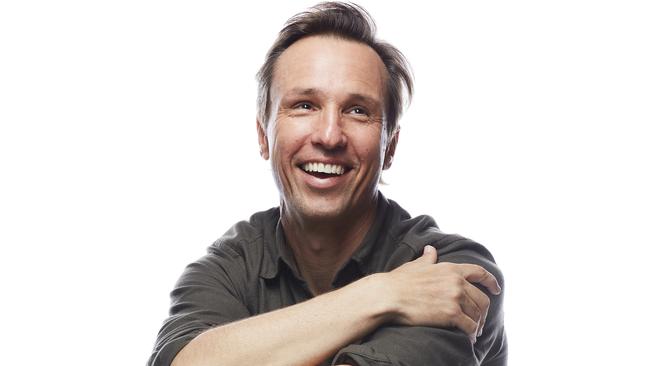
Fame is fickle. Elusive for many, when it arrives it can summon nothing – or it can bring forth a bucketload of fortune, as Markus Zusak can tell you. Half a lifetime ago he was a 20-something writer sustaining repeated rejections. Then his first book, ironically titled The Underdog, was published in 1999, and with its success Zusak’s name eventually came to be splayed across six acclaimed novels.

Today he is a bestselling author. He lives in a grand home in one of Sydney’s loveliest suburbs with his wife, two children and their raucous dog, Frosty, whose regular walks to a nearby park bookend many of Zusak’s days. He addresses sellout audiences, is regularly sought for advice on succeeding as a writer and is among a rarefied group of authors to have seen their works published in dozens of languages.
He knows the thrill, which never quite fades, of walking along a foreign street and discovering his latest words displayed in an unfamiliar bookshop window. He has been on multiple tours, signed countless autographs and seen one of his most beloved novels, The Book Thief, transformed into an award-winning movie that in turn has amassed more than $100m.
And still one tiny, seemingly insignificant marker of his success eludes him. Having published hundreds of thousands of words and won numerous awards across a quarter of a century, Zusak has yet to spot a single person actually reading any of his books, turning the pages, absorbed or even just vaguely interested – not once has he ever caught anyone in the act.
He has come close. On an otherwise insignificant flight a while back, his wife, Mika, nudged him when she saw a woman peering into one of his titles. The moment, however, proved to be fleeting. “I looked,” he says now with a laugh, “and she’d stopped reading.”
Perhaps, he jokes, his phantom reader fell asleep. Mostly, though, he’s philosophical about this elusive aspect of his vocation that, while hardly vital, is certainly gratifying. “It’s kind of poetic that you never see it,” he says simply from the spacious study in his Sydney home. “It’s the shadow that you’re always trying to chase.”
This is the voice of Zusak the realist, the quiet, lyrical storyteller who is unfussed about the intricacies of translation of his works in languages that he can’t read. He is the pragmatist who will readily kill off cherished characters if it helps his plot line. He is also a self-described eternal optimist who enjoys indulging in a bit of failure.
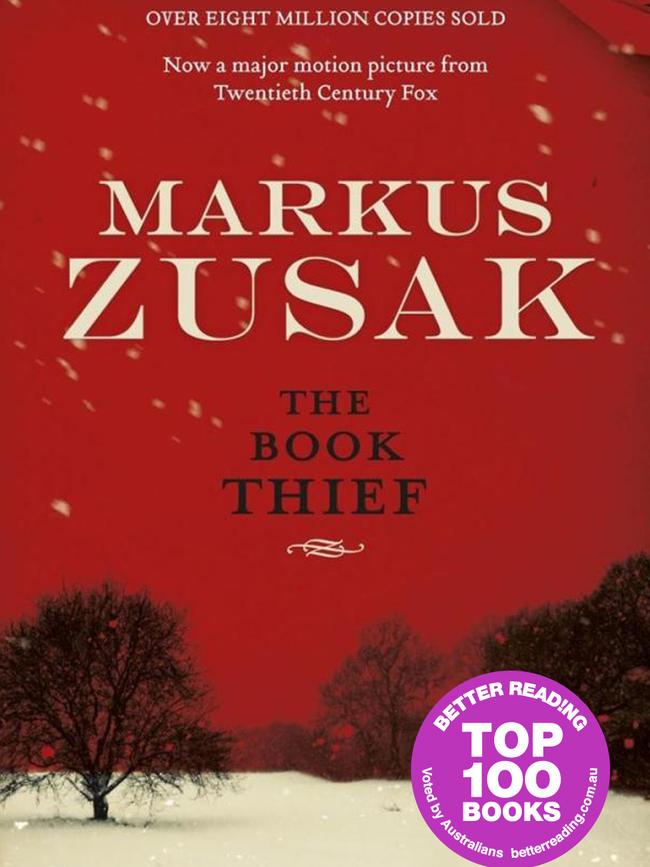
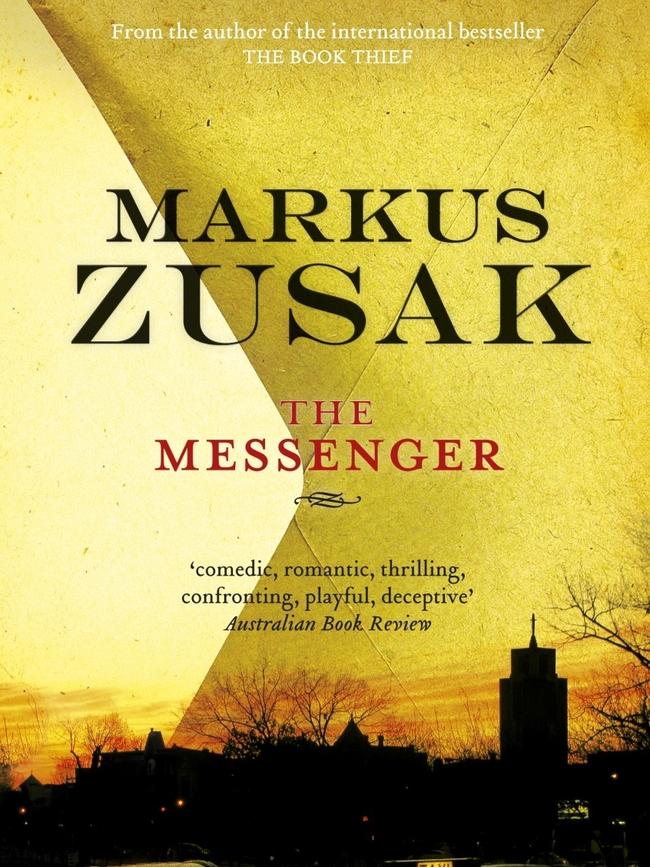
Nine years ago, Zusak delivered a TEDx talk entitled The Failurist. He told a packed Sydney audience about the first reading for his first book. He was in a small town and no one showed up. “The librarian still made me read from my book, just to her. And that sort of failure and humiliation seemed like a fitting way for me to start my writing career because every success I’ve ever had has come wrapped in a gift box of failure.”
Almost a decade later, little has changed. “I wrote this exact sentence this morning,” he reveals on this autumn morning. “It’s basically that my writing life mostly consists of fear and doubt. I am just constantly worried about my abilities.”
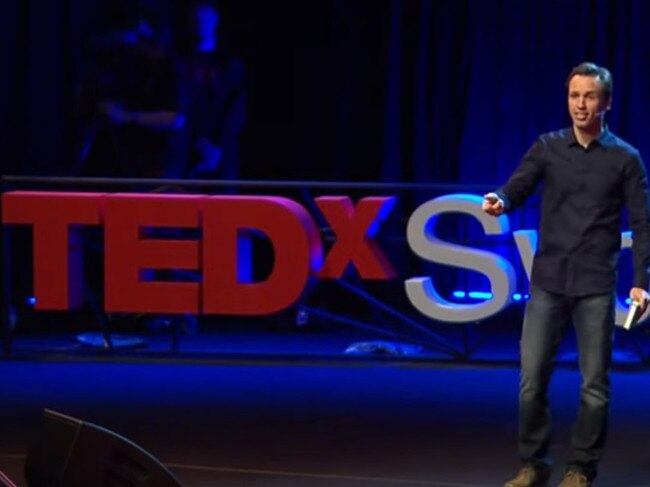
What Zusak characterises as failure, however, could easily be classified as persistence. He grew up in Sydney’s south with his European-born parents and three older siblings, and his childhood involved a decent amount of sport (his father, a house painter, once spent a good chunk of a weekday afternoon helping him perfect his discus technique in the rain) mixed with a growing interest in the world of words. He started writing at 16, while he was a student at Engadine High.
His success in adulthood comes courtesy of a series of books that mostly took eons to produce.
He spent two and a half years writing just the first half of The Book Thief. His most recent novel, Bridge of Clay, took a mighty 13 years to complete. Zusak’s profession may be highly desirable, to the point of romanticising for his legions of fans, but it is also often a hard slog. And with that comes long spans of uncertainty.

Who, he wondered as he laboured for years over its sentences and chapters, would read The Book Thief, a 580-page novel set in Nazi Germany, narrated by Death and in which nearly everyone dies? The equivalent of the combined populations of Sweden and Denmark, it turns out, thanks to the 16 million copies sold since the book’s release in 2006 and its one and a half decades on The New York Times bestseller list.
Restarts and rewrites may have characterised much of Zusak’s career but, while he classifies them as failures, he also acknowledges that they have vastly enhanced his work. Across countless years and reworkings, he has learned that a touch of negative thinking can in fact do wonders to words.
“Writing a book, it’s a bit like all the grand plans you have when you go to bed for the next morning, and you have this vision of yourself going on a run. Then the alarm goes off at 5.15 and you think: ‘Holy shit, what was I thinking?’”
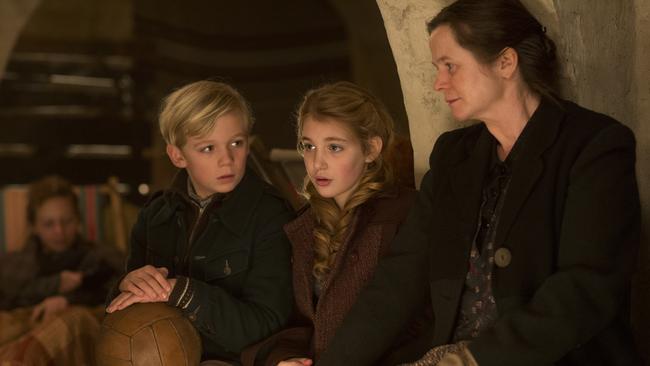
In reality, he says, “there’s no glorious sunrise… Just drag yourself to the desk and start. The rest probably won’t write itself but you’ve probably gotten over the first hump.” While he often wrestles with doubt, his realist’s voice continues to mutter. “No matter how many times I can’t get it right, I have this unshakeable belief that I am going to get it together in the end.”
To this unlikely mix of doubt and assurance, Zusak also throws in a good measure of time, as he allows himself the chance to finesse and then finesse a little more in the creation of his work.
So it seems fitting that time has been a crucial factor in the latest branch of his career, with another of his bestsellers, The Messenger, about to debut as an eight-part television series – 21 years after the book was first released.
On the Zusak-scale of toil, this book’s birth was comparatively swift. He spent a year writing The Messenger, his tale of Ed Kennedy, the 19-year-old “epitome of ordinariness” who becomes an unlikely hero in the aftermath of a bank robbery.
When the novel was released in 2002, Zusak’s name had already assumed considerable weight, thanks to his three-part anthology on brothers Cameron and Ruben Wolfe. He was actually embarking on his fourth book, yet to Zusak it felt like The Messenger was only his second, with all the pressures that a follow-up invariably carries.
As he says: “When your first book comes out, you wonder who’s going to buy it except for your family.” With a second comes the added burden of expectation.
Even with a successful anthology behind him, Zusak was unsure if this manuscript would find an audience. “I didn’t have any idea what I was doing,” he says of the year-long grind to write The Messenger, which he now sees as a bonus. “I only want to write books that I am not sure I can finish, where the whole time you are wondering, ‘I hope I’ve got it in me to end this’.”
The beginning, in comparison, was easy enough. He was eating fish and chips in the car with Mika when a throwaway line became the opening to a novel that would also shape his career.
-
“Writing is the thing that gives me a sense that I am doing something useful in this world.”
-
Parked outside a bank at Kiama, on the NSW south coast, the couple noticed they had stopped in a 15-minute zone. “And I said, ‘Geez, 15 minutes isn’t long enough to go into a bank,’” recalls Zusak, picturing the many times he’d played at a Lego table at his local bank during the long minutes his parents had queued up to see a teller.
“What if you’re in that bank when it was getting robbed and your car was in a 15-minute parking zone?” Mika wondered aloud. And suddenly Zusak had the opening to his next book, and the makings of one of his few chapters, he says, that seemingly wrote itself.
Despite the relative ease with which he launched into the novel, once again uncertainty shadowed him as he handed over the manuscript, and once again it was unfounded. More than one million copies of The Messenger have been sold in 34 territories, and the book has garnered awards in Australia, the US and Germany.
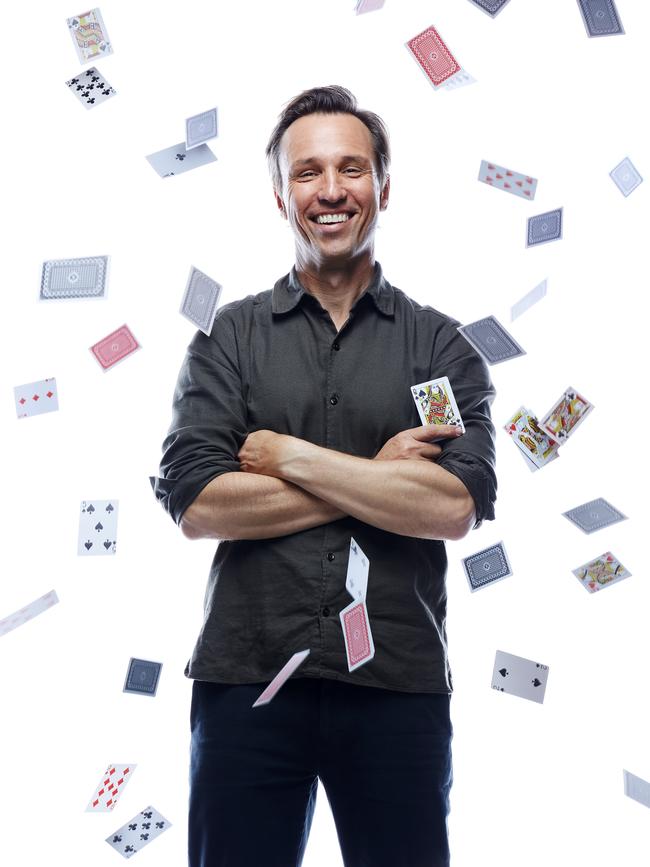
Two decades on, Ed Kennedy, Zusak’s homespun superhero without any physical superpowers, in some ways remains stuck in time. He uses a phone booth to make hurried calls, and searches library catalogues, with no mention of Google, in a not-so-long-ago era. “I don’t think I’m capable of writing in that way any more,” says Zusak, who at 48 is twice as old as when he wrote The Messenger. “It would be hard for me to even recapture the tone of the book.”
Still, some of the messages he imparts are as relevant as ever. Inspired by his father’s advice that to deserve big things you need to appreciate life’s smaller offerings, Zusak has long been a chronicler of life’s finer details: the ice blocks his mother would buy him on the way home after he accompanied her to work cleaning houses; the patience his father expended one long afternoon as he tried to help his young son perfect his discus technique, “these little bits and pieces of life where someone puts their own needs aside”.
Creating Ed Kennedy, he was inspired by some of the small acts he had witnessed in his earlier life, among them the footy coaches who volunteered to train youngsters every weekend, in exchange for perhaps a thanks and the occasional win.
-
“When your first book comes out, you wonder who’s going to buy it except for your family.”
-
But it was not until the bewildering days of Covid-19 lockdowns that some of the small, kind gestures that punctuate Ed Kennedy’s world suddenly became keenly apparent in Zusak’s real world, as they did in so many others, as neighbours checked on one another or chatted from their respected suburban patches over a cup of tea.
“Maybe everyone can live beyond what they’re capable of,” Zusak wrote in The Messenger in 2002. While that notion has endured for 21 years, Zusak was less certain initially about it being translated for television after so long.
Across many years he had attracted repeated interest to develop the novel. Some options expired, and he rejected one substantial offer from the US because it was from the wrong place. “I was really holding out for this book. I felt like it’s a really Australian book and it’s a really Australian setting, it has a really Australian sensibility.” So he was keen for the Australianness to be retained by a local team.
But even when an Australian production company emerged, Zusak was not initially convinced the adaptation would work, and he approached early meetings with trepidation. “You go into it with a healthy suspicion,” he says. “Your No.1 thing is, ‘I just want to get through this and I don’t want to cringe once’. I can happily report we read the first script, we read the second script, and I thought, ‘I don’t think it [cringing] is going to happen’.”
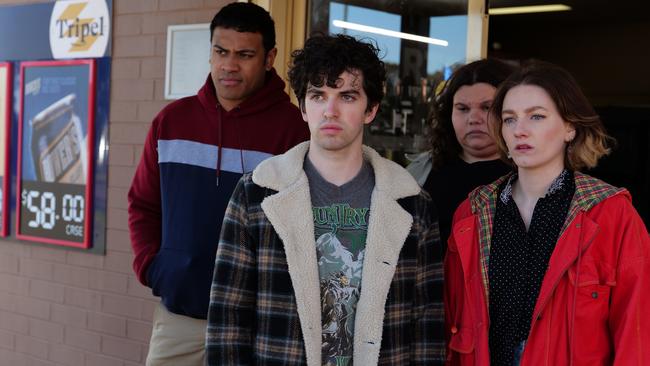
While Zusak is listed as executive producer, his involvement in the TV series was limited. Books, and their creation, remain his calling. “It’s really at the end of the day the only thing that makes me happy,” he says. “Writing is the thing that gives me a sense that I am doing something useful in this world or the job that I am supposed to do.”
He has other passions. “I love being out with my family and walking my dog every day.” But somehow writing seems to illuminate everything else. “Whether it’s cleaning the house or mowing the lawn, I do all of those better when I’m writing well.”
Having now spent half his life doing just that, the pragmatist with a touch of pessimism underlined by the eternal optimist in him remains cheerily grateful. “You sit down in the outer suburbs of Sydney to start being a writer and you think you will never be published,” he says. “So I can never ever complain about life or if I have a hard day or if it’s not going well or if I never get another book published. Because I’ve had my shot, and then some.”
The first of eight episodes of The Messenger is on Sunday, May 14, at 8.20pm on ABC and ABC iview.


To join the conversation, please log in. Don't have an account? Register
Join the conversation, you are commenting as Logout